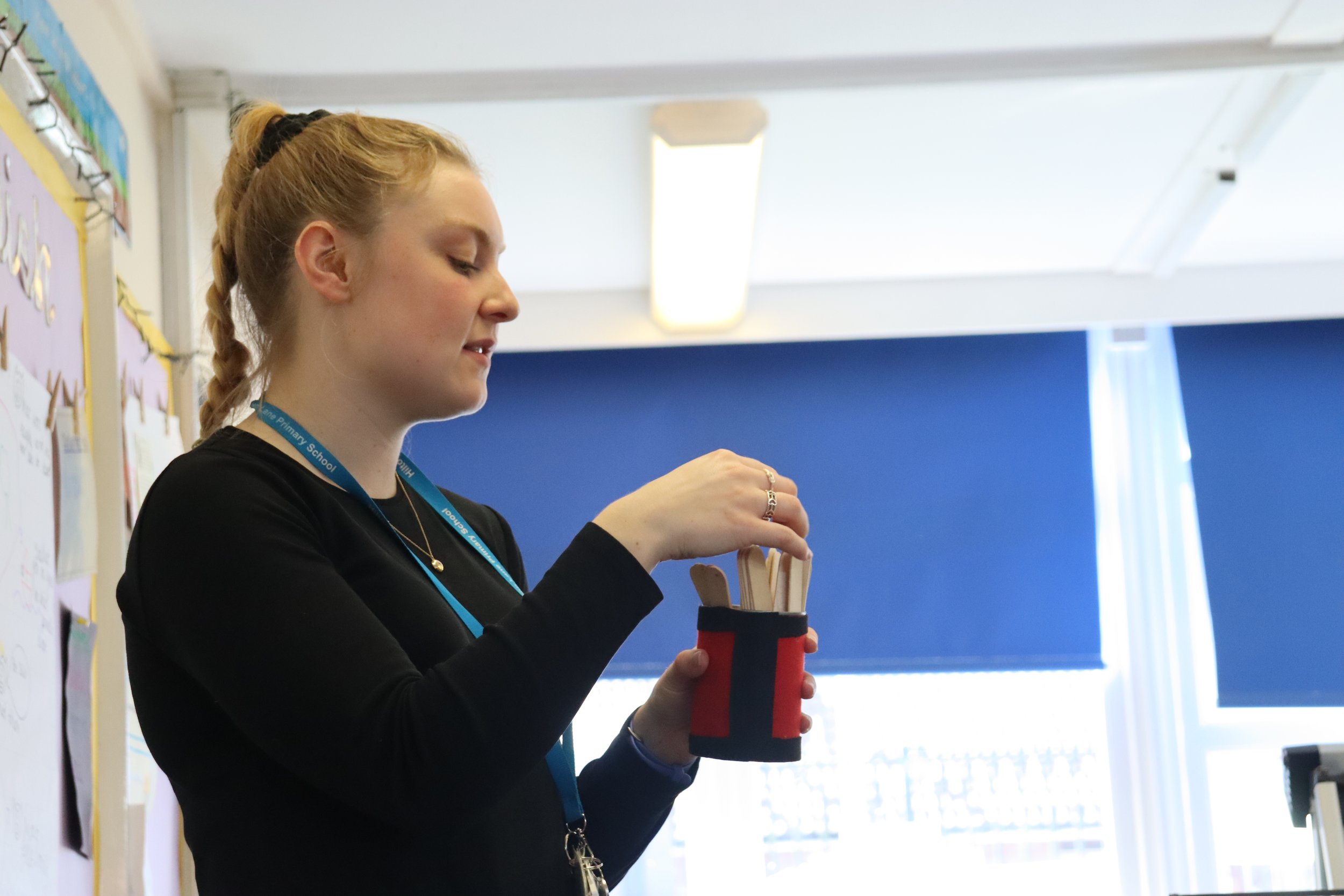When I carry out Talk Audits in schools that use hands up or cold calling, I often do a tally of who is selected to speak. I sometimes notice that teachers are mainly choosing girls, or mainly choosing boys, or disproportionately selecting children from one cultural group.
Research shows that despite our best intentions, we all have unconscious biases. These can influence a number of things in the classroom, including who we choose to respond to questions. By using random selection, you can minimise potential bias. Let your lolly sticks decide who will speak!

Taking it further
For a thought-provoking read about how unconscious bias can manifest in schools see https://www.responsiveclassroom.org/wp-content/uploads/2017/10/Unconscious-Bias_Ed-Leadership.pdf
This would be a great stimulus to start reflection and dialogue with colleagues in your school.
My top three strategies to make sure every pupil speaks during whole-class learning
The importance of positive, transparent systems for deciding who responds
Three essential ingredients to ensure pupils have the confidence to speak in front of their peers
Simple-yet-effective techniques to get three year olds talking and keep them focused.
When using random selection in whole class learning, if a child doesn’t respond, there are several options.
Lolly sticks are a really simple way to randomly select children, but like anything they need to be used properly.
Pupil Voice is an important part of my Talk Audits; here are some recent responses when I asked Key Stage 2 children their opinions about Hands Up…










